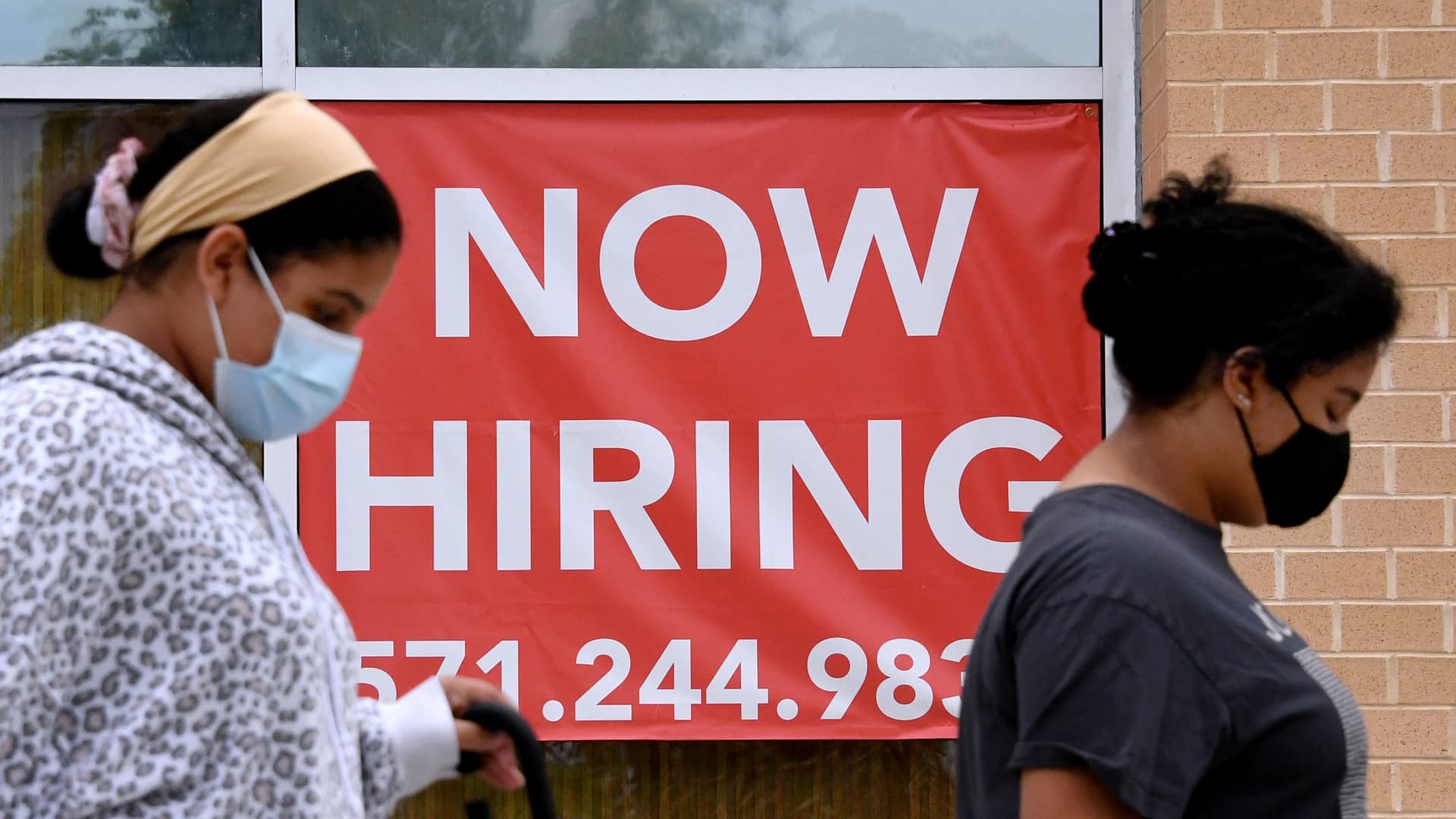FTC Chairwoman Lina Khan testifies during a budget hearing of the House Energy and Commerce Subcommittee on Innovation, Data and Commerce on April 18, 2023.
Tom Williams | Cq-roll Call, Inc. | Getty Images
The U.S. Chamber of Commerce and several other business groups sued the Federal Trade Commission in federal court in Texas on Wednesday over the commission’s decision to ban noncompete agreements designed to prevent workers from joining competitors in the same industry.
On Tuesday, the FTC voted to pass the ban, saying noncompete agreements can reduce labor market efficiency, hinder competition and result in higher prices for consumers. Non-compete agreements often prevent employees from taking other jobs in their industry and prevent those jobs from offering better pay.
The ban is scheduled to take effect 120 days after the rule is officially published in the Federal Register.
Meanwhile, business groups are trying to block the ban, saying the FTC doesn’t have the authority to implement the rule and that the rule itself is too broad.
“The sheer economic and political significance of a nationwide non-compete agreement demonstrates that this is a matter for Congress to decide, not an agency,” the U.S. Chamber, which represents about 3 million businesses, wrote in the Texas lawsuit filed in the Eastern District.
The business groups claimed that the FTC’s ban “violates centuries of state and federal laws.” In addition to the Chamber of Commerce, the Business Roundtable, the Texas Association of Business and the Longview Chamber of Commerce are also plaintiffs in the lawsuit.
They claim that non-compete agreements are essential to protecting internal company secrets and confidential information. The FTC suggested that companies should look to other information protections, such as non-disclosure agreements, instead of non-compete clauses.
The FTC rejected the accusation that it had exceeded its legal limits.
“Our legal authority is crystal clear,” FTC spokesman Douglas Farrar told CNBC in a statement. “Fighting non-compete agreements that restrict Americans’ economic freedom is at the heart of our mandate, and we look forward to winning in court.”
The Commission estimates that approximately 30 million U.S. employees, or 18% of the American workforce, are currently subject to non-compete agreements.
Read more about CNBC’s politics coverage
The ban would not only prohibit the use of future non-compete agreements, but would also require companies to eliminate existing non-compete agreements for all employees except some executives. The business groups claim that this latter provision is “inadmissibly retroactive” as it invalidates previously agreed contracts.
“Companies that have negotiated non-compete agreements will lose the protections of those agreements — even if they have already held up their end of the bargain,” the business groups wrote.
The business groups also claim that not all non-compete clauses are created equal and many “do not pose a threat to competition” in the broader market.
The U.S. Chamber has threatened to sue the FTC over this rule since the commission first proposed it in January 2023. Since then, the FTC has received about 26,000 comments, most of which the agency described as positive, although the chamber claims the FTC has not addressed many of the companies’ criticisms.
The Chamber’s legal threats last year were also met with challenges on Capitol Hill, where there is bipartisan support for expanding current non-compete provisions into a total ban.
Don’t miss these exclusives from CNBC PRO
Source link
2024-04-24 18:39:45
www.cnbc.com








